Mother Nature is an artist. Our planet is home to countless natural landscapes that can take anyone’s breath away. It seems as if all the beauty in this world has been poured into these magnificent works of art, so we imitate them--or at least we try, so we can see them anytime we want. After all, who doesn’t like the view?
Maybe we won’t be able to copy nature in its entirety, but we surely can get close. With a good landscaping team and all the premium materials available, we can all have our own delightful scenery to swoon over!
1. Kenrokuen Garden, Japan
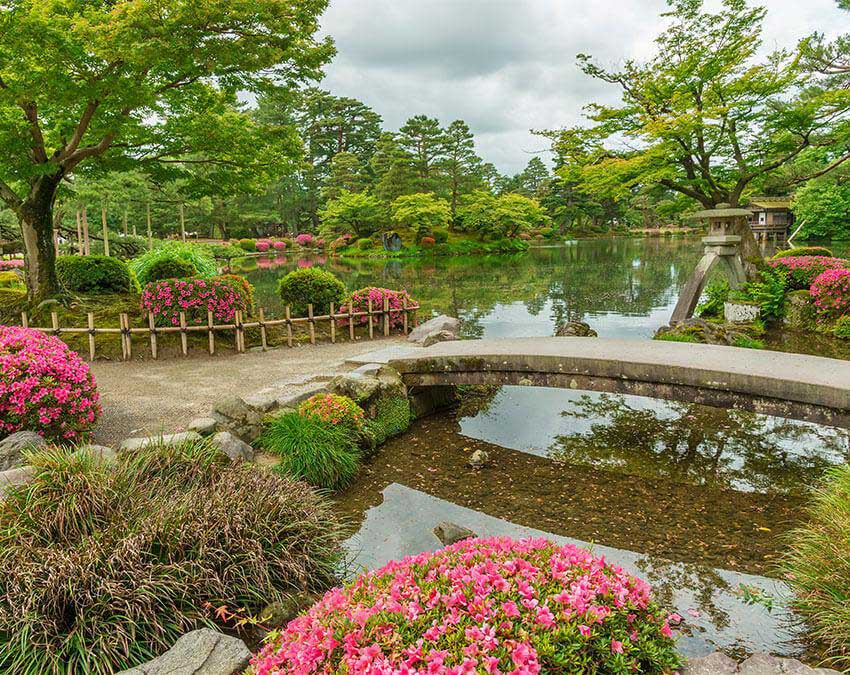
Kenrokuen in Kanazawa is one of the finest examples of Japanese gardens. The spacious area used to be the outer garden of the Kanazawa castle. It was constructed by the ruling family at the time—Maeda--for nearly 200 years. It was first opened to the public in 1871. This garden is home to a large variety of flowering trees which provide the garden with a different look for every season change.
2. Nong Nooch Tropical Botanical Garden, Thailand
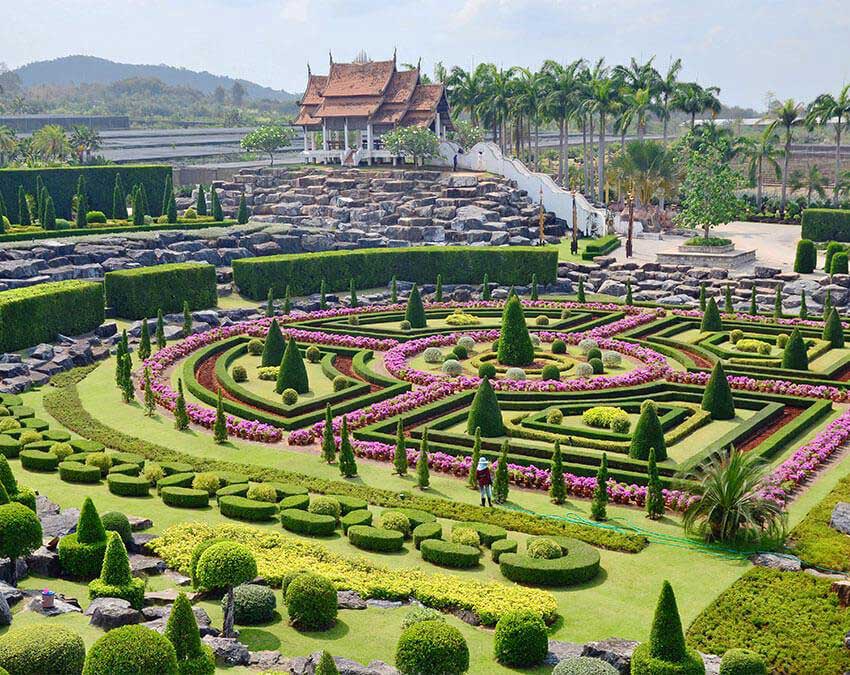
In 1954, Mr. Pisit and Nongnooch purchased a 600-acre land with intentions of developing the land as a fruit plantation. They eventually changed their mind and decided to turn it into a wildlife conservation project filled with tropical plants and flowers. The garden was opened to the public in 1980, and management was transferred to their son Kampon Tansacha in 2001. 500 out of 600 acres are currently vivid with floral colors.
3. Keukenhof, Netherlands
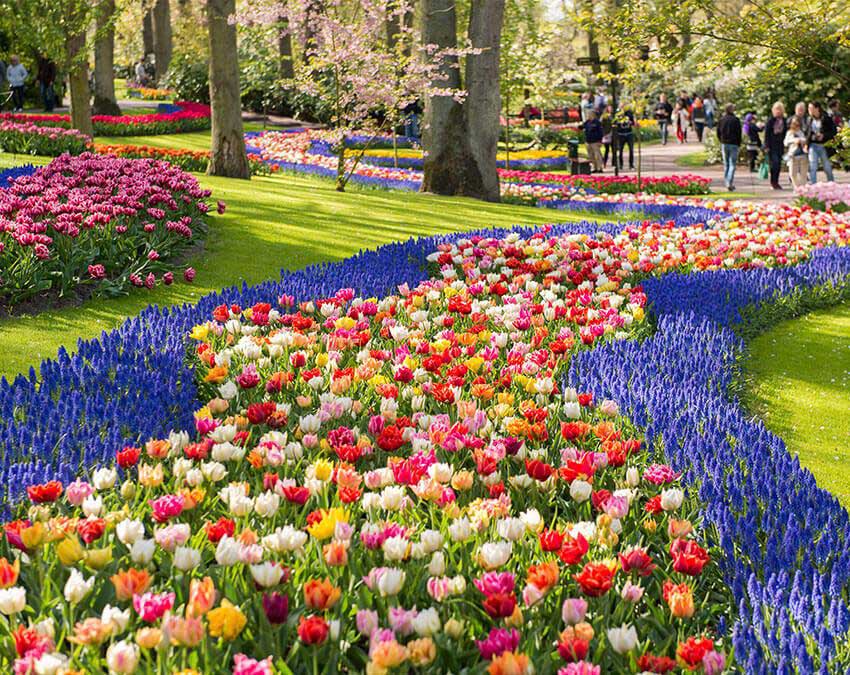
Covering nearly 80 acres, Keukenhof (or Kitchen Garden) is easily one of the largest flower gardens in the world. Approximately 7 million bulbs are planted yearly in this park. Keukenhof is open yearly from mid-March to mid-May with the best time for viewing the tulips around mid-April, depending on the weather. You’ll want tulip here!
4. Gardens of Versailles, France
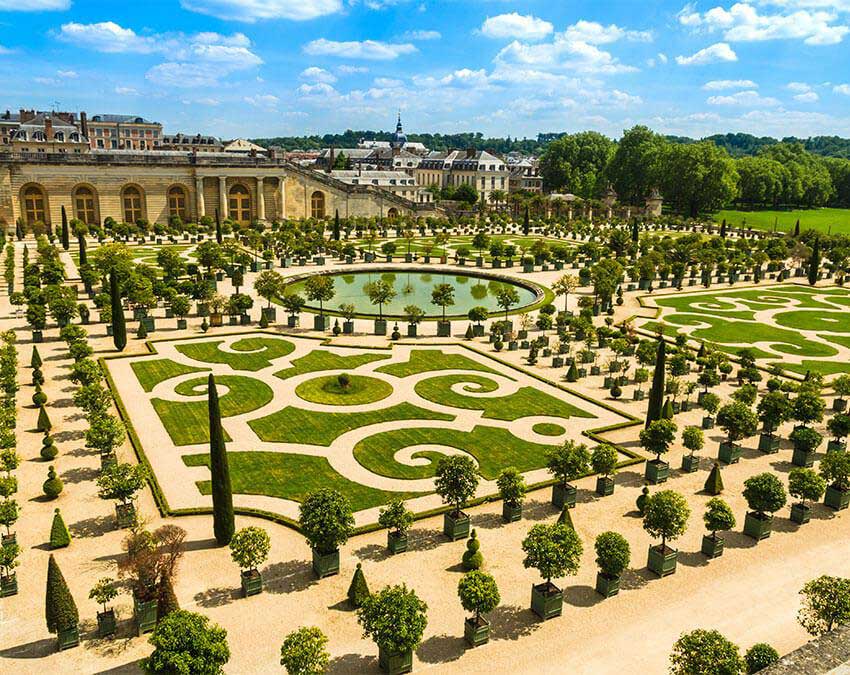
No list of beautiful gardens will ever be complete without mentioning the Gardens of Versailles. Covering nearly 2000 acres of land, this landscape was designed by gardener Andre Le Notre who was commissioned in 1661 by no less than Louis XIV. More than 6 million visitors stroll the gardens yearly.
5. Brooklyn Botanic Gardens, New York
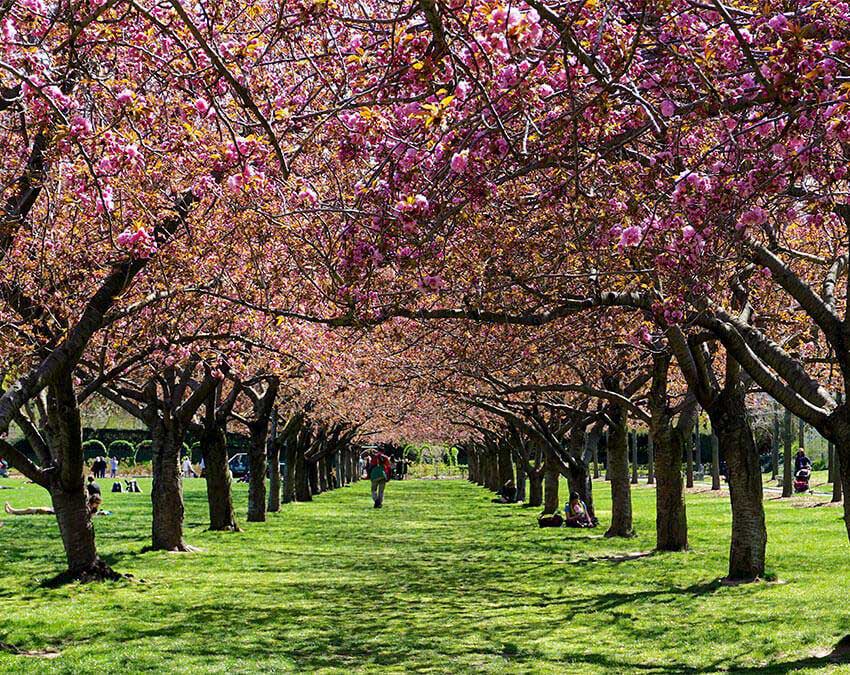
It’s not every day that you find a 52-acre garden in the very heart of a metropolis. But that’s exactly what you can find in New York--the awe-inspiring Brooklyn Botanic Garden. Known for its 200 cherry trees, it takes center stage during month-long blossom festivals.
6. Kew Royal Botanic Gardens, United Kingdom
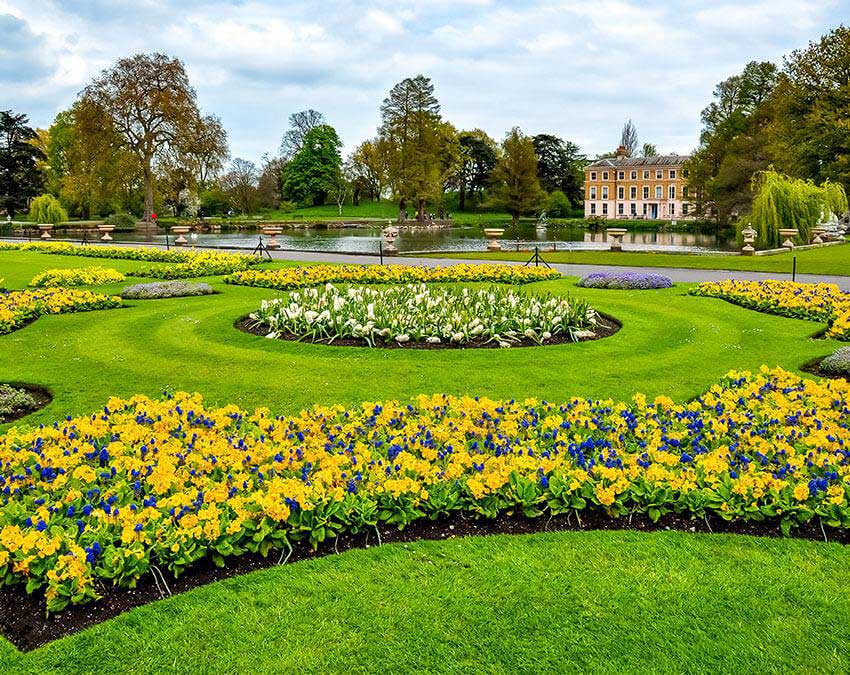
Kew is more than just a scenic green space, it is also an internationally known research institution that employs hundreds of researchers and scientists. The garden is home to dozens of historic buildings such as the Victorian-era Palm House and showcases more than 40000 species of plants.
7. Kirstenbosch National Botanical Garden, South Africa
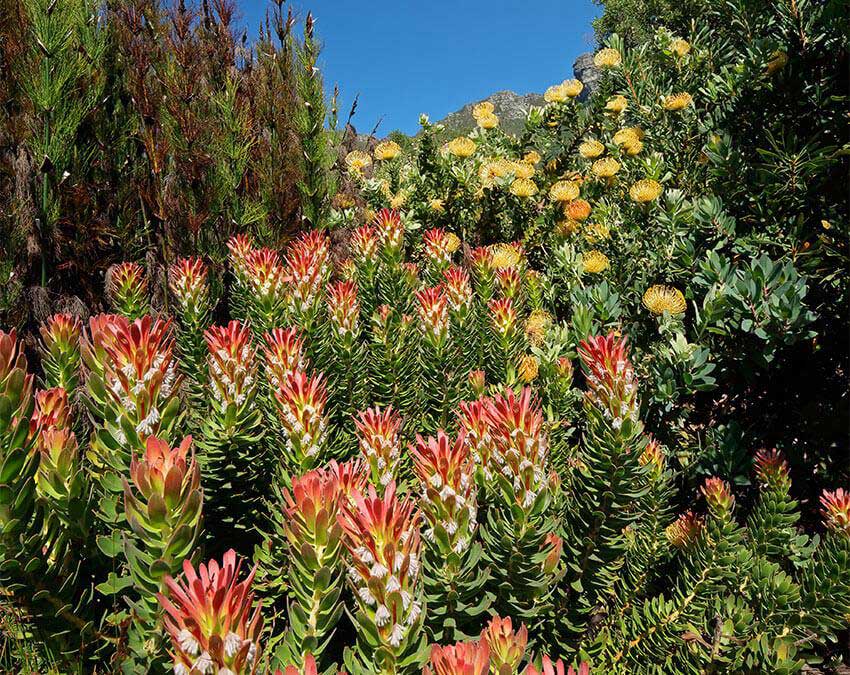
The grand Kirstenbosch was established in 1913 with the goal to preserve the South African flora. The garden is around 90 acres by itself, but it is actually just one part of a 1300-acre nature reserve. The garden sits on the slopes of Table Mountain.
8. Jardin Majorelle, Morocco
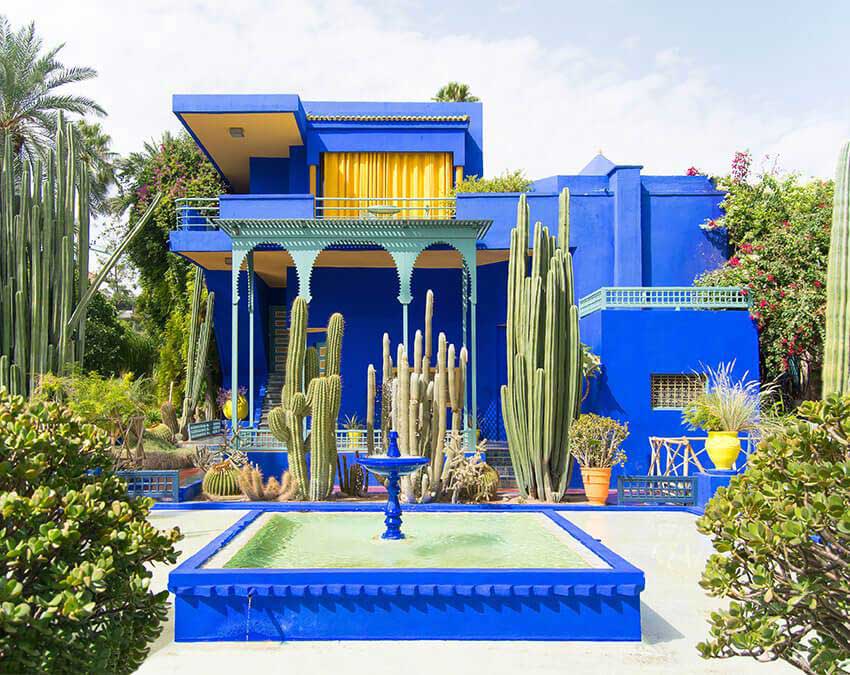
It took French painter Jacques Majorelle around 4 decades to craft this beloved garden around his villa in Marrakech. It is highly noted for the luminous blue paints of its pots, gates, buildings, and more. The garden was eventually purchased by Yves Saint Laurent and Pierre Berge in 1980. Currently, the villa complex and the garden is open to the public.
9. Villa d’Este, Italy
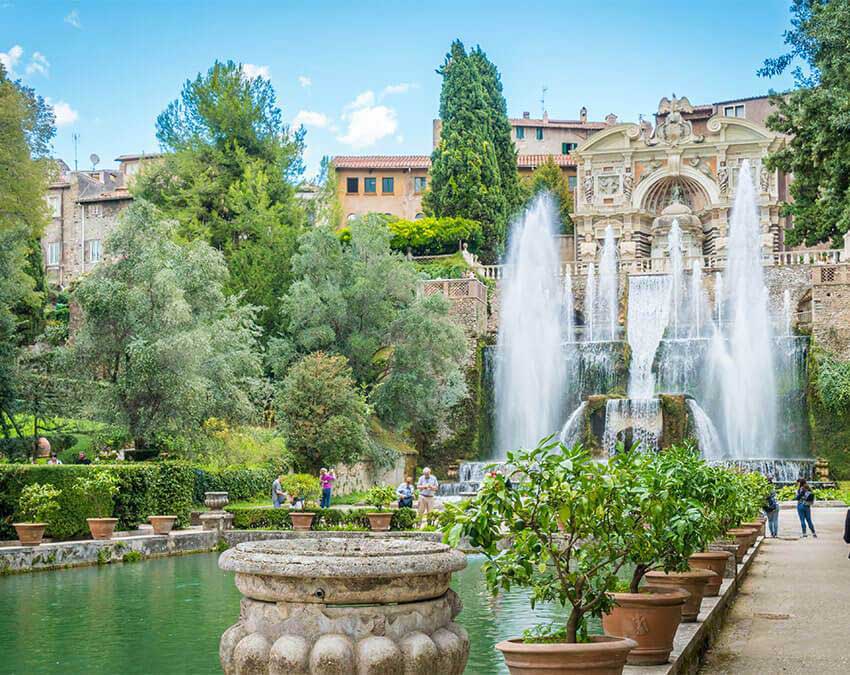
The 16th-century villa is home to an incredible garden with 51 equally impressive fountains. The main building is a marvel as well as the other fountains that run on gravity alone. This makes it an achievement and thus, the terraced landscape became an inspiration for many Europeans to follow.
10. Summer Palace, China
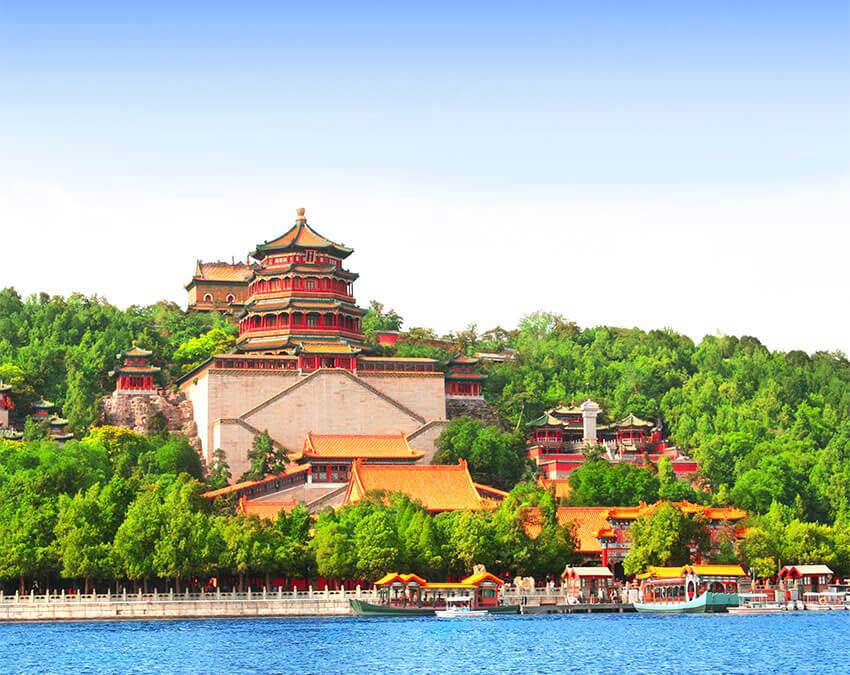
The summer palace is an architectural mix of historic pavilions, bridges, temples, and a hilly natural landscape. It was considered a “masterpiece of Chinese landscape garden design” by UNESCO. It was designated a World Heritage Site in 1998.
11. Controlled Garden Chaos, Netherlands
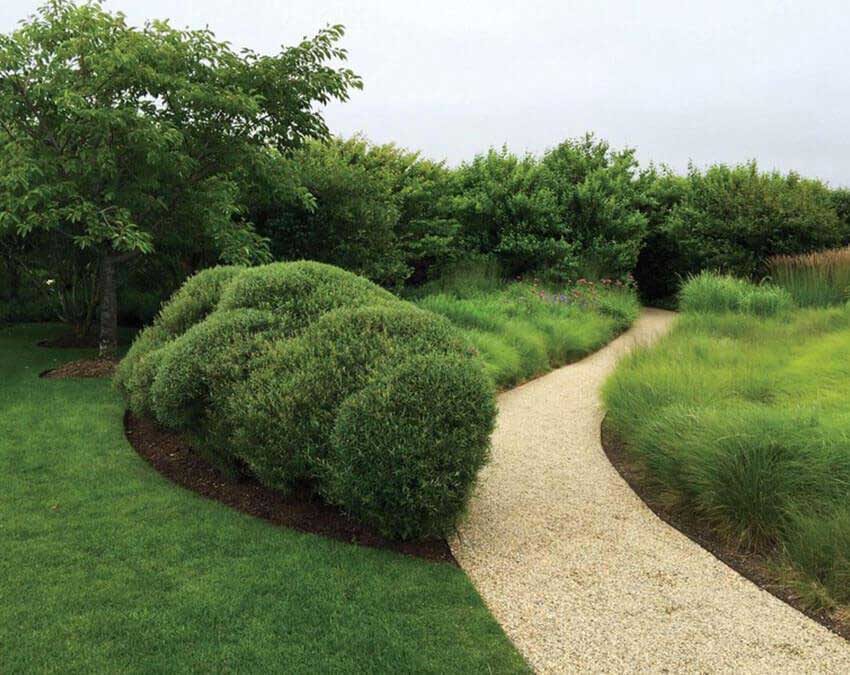
Landscape designer Piet Oudolf creates garden designs that favor masses of perennial plants and native grasses. He chooses them for their structure over fake grass or flowering plants that only last for a few months. His naturalistic landscapes are often surrounded by concrete, glass, and steel.
12. The New Zen Garden, New York
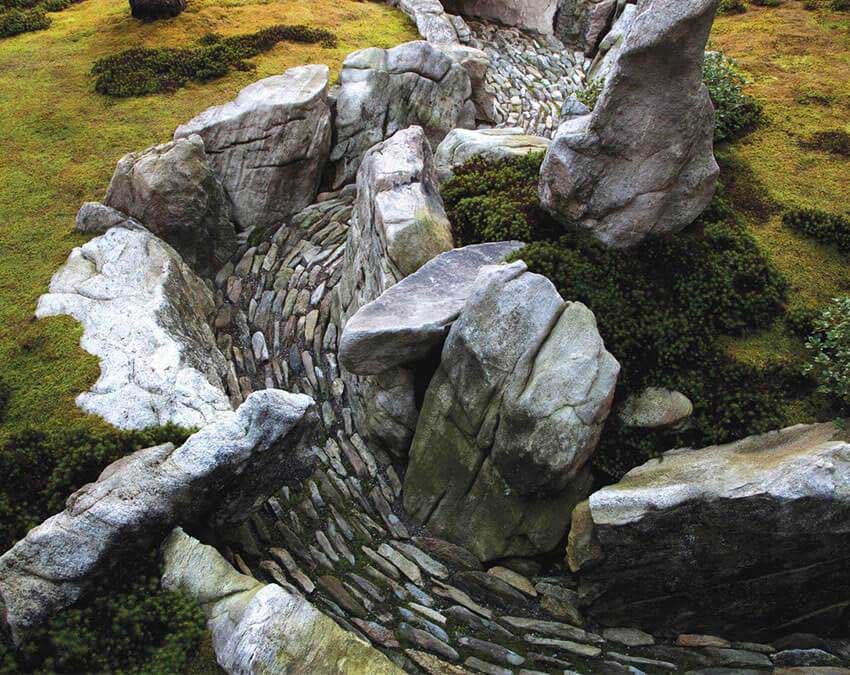
Marc Peter is a native New Yorker who spent 18 years in Kyoto, Japan. He then returned to the USA to design gardens and teach landscape architecture. He approached this specific landscape project with high respect for Japanese traditions relying on irregularity, simplicity, and poetic symbolism.
13. Modern Cali Cool, California
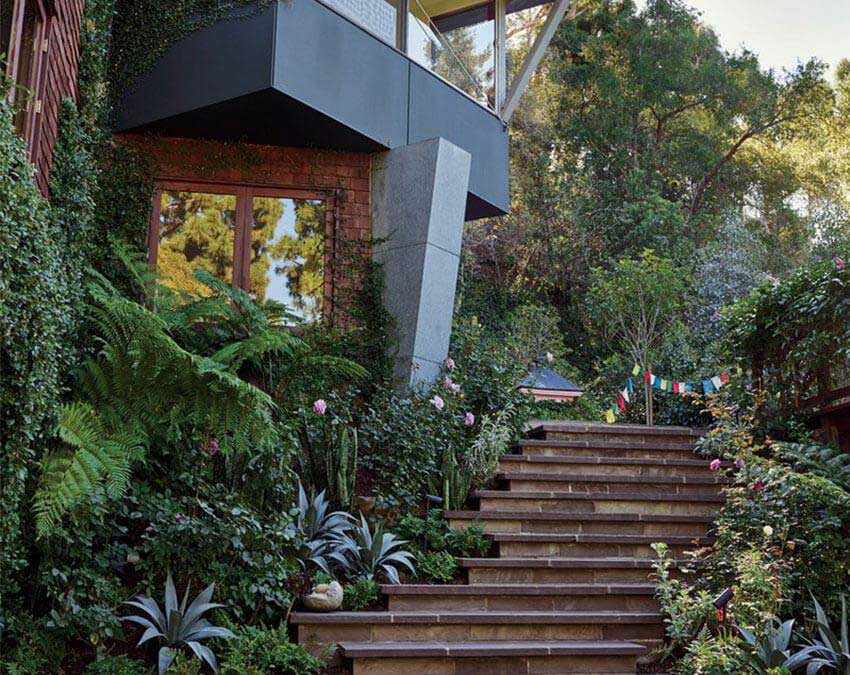
Terremoto founders David Godshall and Alain Peauroi believed that there was a growing need in California for landscaping that operated at a precise conceptual level. Their installations reflect the desire to bring more thought to the gardening business. They have a penchant for wild and messy gardens that are still inhabitable.
14. Natural Brutalism, Chile
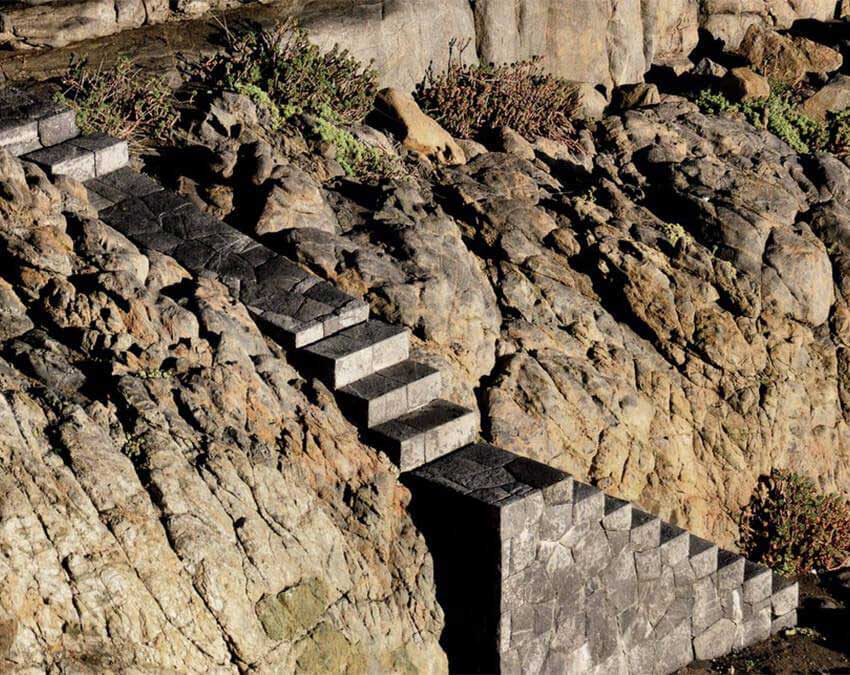
There are times where the geography of a landscape is so dominant that the only way to beautify it is to work around it or within it. This was what designer Teresa Moller did when she created a footpath along the endlessly damp coastline of a 27-acre land between Zapallar and Papudo.
15. High Line, New York
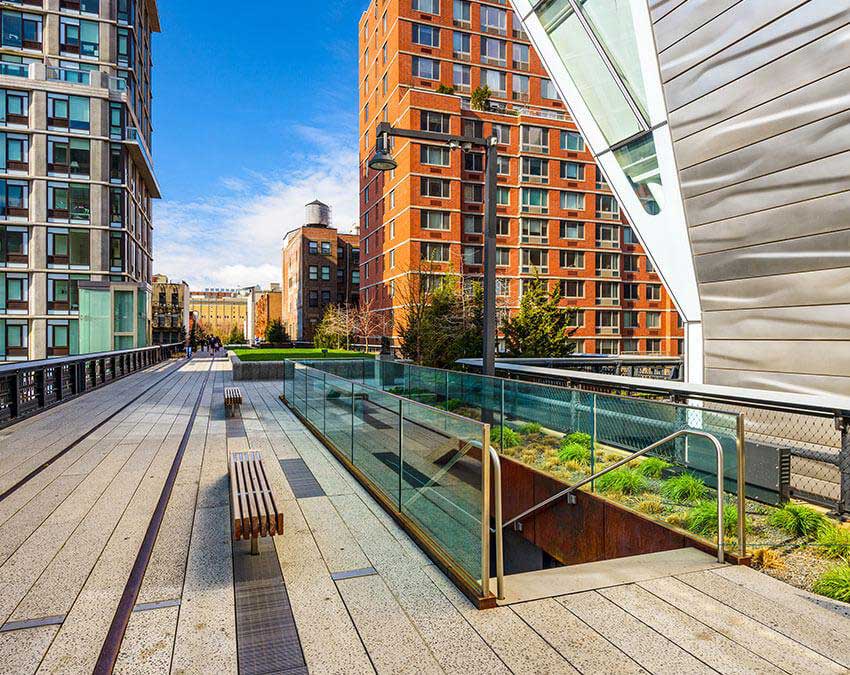
Created on a former New York Central Railroad on the west side of Manhattan, the High Line is a 1.45 mile long elevated linear park, rail trail, and greenway. This abandoned spur was redesigned to become a “living system” that draws inspiration from multiple disciplines some of which include urban design, ecology, and architecture. The High Line has become a contemporary landscape architecture icon since opening to the public in 2009.
16. Ranelagh Gardens, Dublin
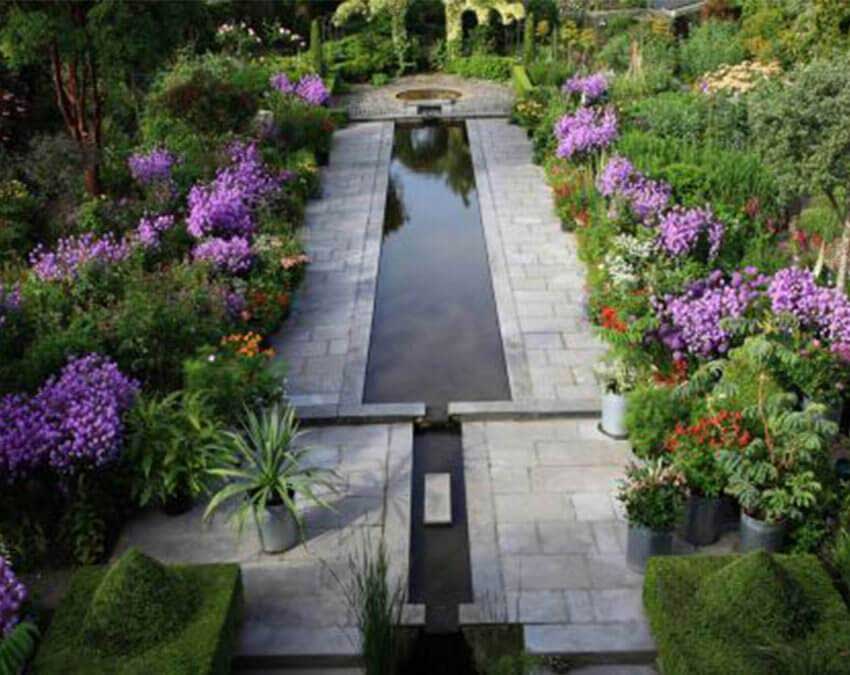
The Ranelagh Gardens are public pleasure gardens located in Chelsea just outside of London. They were called as such because they occupied the site of Ranelagh House. It was built in 1688–89 by the Earl of Ranelagh and it was believed that he designed and built it himself. But the actual builder and owner was one Solomon Rieti, an Italian Jewish immigrant.
17. Brigit’s Garden, Ireland
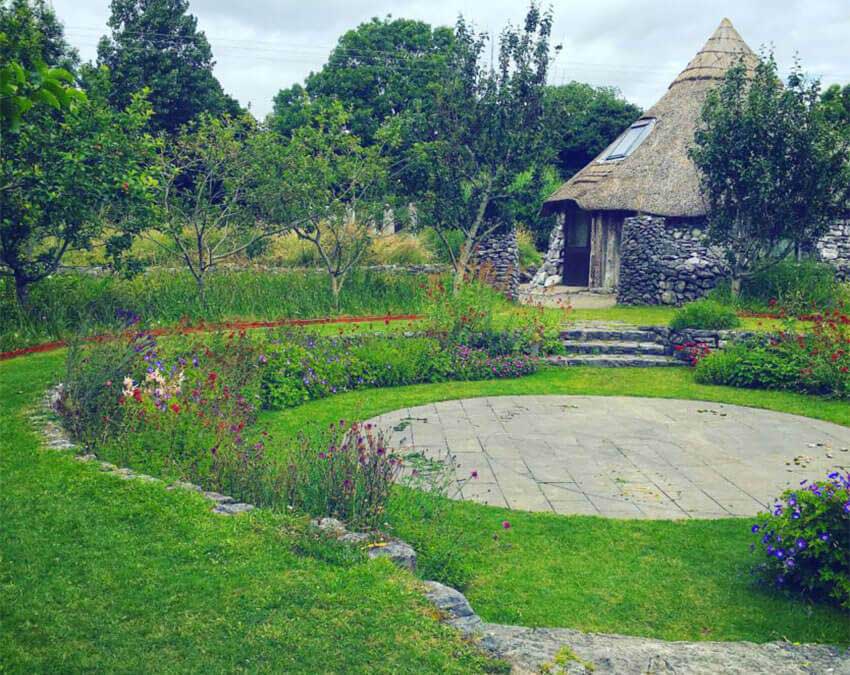
Brigit’s Garden is considered a sanctuary in the west of Ireland. It takes visitors on a magical journey into the very heart of Celtic heritage and mythology, easily making this a must-visit for tourists and locals alike. Set within 11 acres of wildflower meadows and native woodland, it is one of the most spectacular gardens in Ireland.
18. Garden of Cosmic Speculation, Dumfries
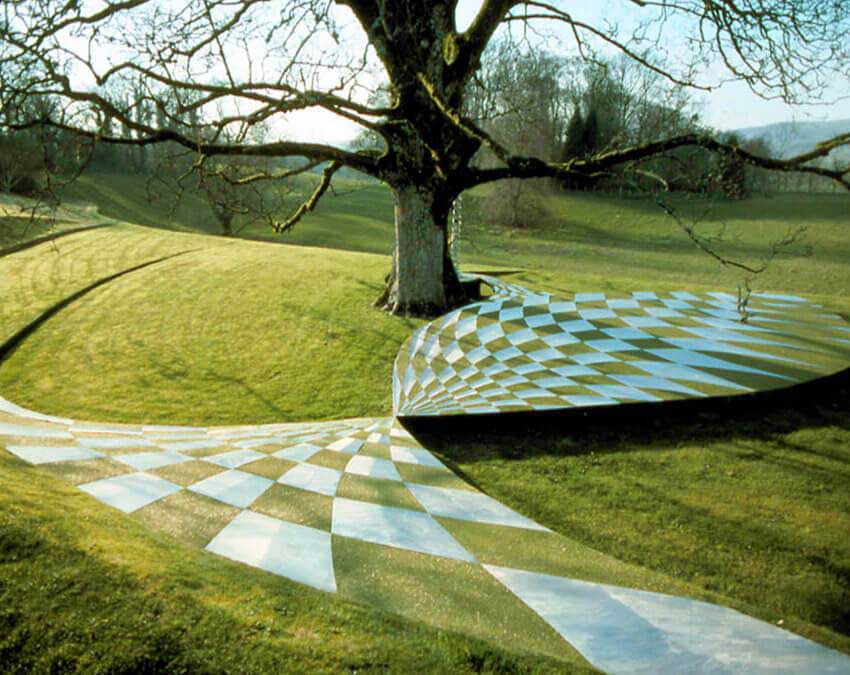
The Garden of Cosmic Speculation is a 30-acre sculpture garden created by theorist and landscape architect Charles Jencks. The garden is inspired by modern cosmology, mathematics, and science. Sculptures and landscaping draw heavy inspiration from themes such as fractals and black holes. Although not as abundant with plants, it elegantly combines natural landscape with artificial symmetry and curves.
19. Great Dixter, England
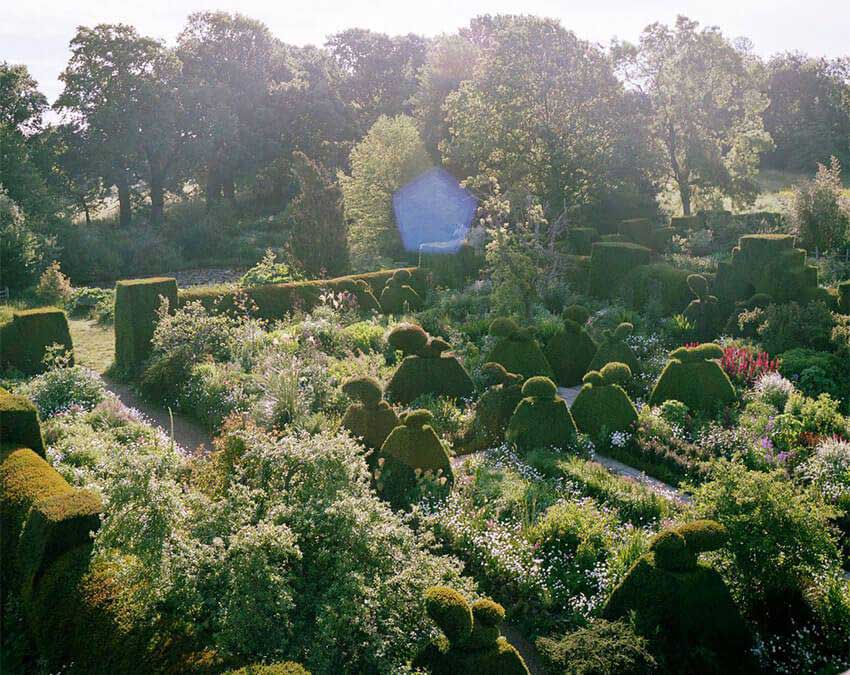
The Great Dixter is a house found in Northiam, East Sussex, England. Architect Edwin Lutyens combined an existing mid 15th-century house on the site from 1910-1912 with a similar structure brought from Benenden, Kent, and joined it together with his own additions. The garden is widely known for its one-of-a-kind tradition of sophisticated plantsmanship and is listed Grade 1 in the National Register of Historic Parks and Gardens.
20. Freedom Park, South Africa
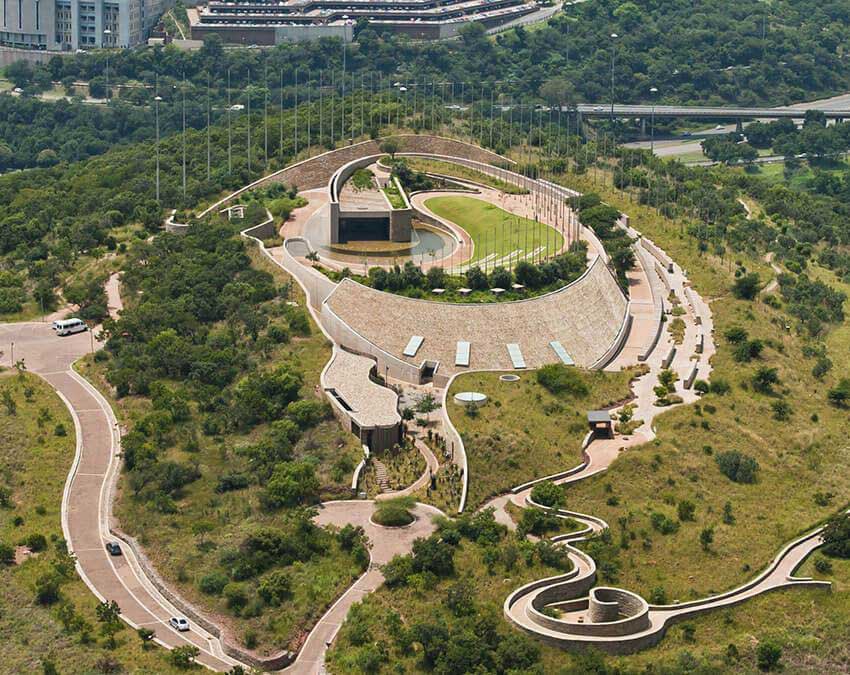
This park is located on a 52-hectare site which also happens to be a vantage point offering visitors a panoramic view of the capital and beyond. The mandate of this park is the creation of a memorial and monument that will narrate a 3.6 billion year story following 7 epochs. The garden of memorial features a list of the names of those killed in the South African Wars, World War I, World War II as well as during the apartheid era.
There you have it, our top 20 landscapes!
We’re absolutely sure that there are more architectural wonders out there, we just can’t get over the ones that are on this list! You can use these projects as inspiration for your home or maybe a commercial space you’re working on. What do you think? Which one is your favorite? Whichever you choose, one thing is for certain, we are all lucky to live in a world filled with so much beauty and humans who can recreate the same beauty for everyone else to enjoy.
That’s why we here at MegaGrass strive to protect the environment through the use of our products. The next time you think about landscaping, replicating or modifying a garden--or even just designing a miniature of a place you like—you can use our products for that no-hassle upkeep and realistic feel!






















